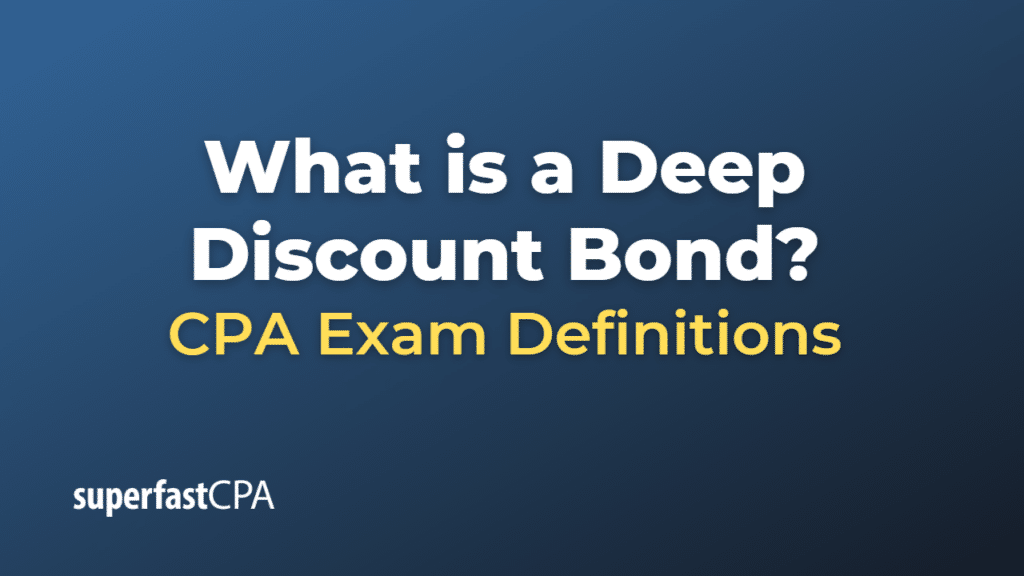Deep Discount Bond
A deep discount bond is a bond that is sold at a significant discount to its face value, i.e., at a price much lower than its par value. For example, a bond with a face value of $1,000 might be sold for $700 or less.
The deep discount allows the bondholder to make a substantial profit when the bond matures, as the issuer is obliged to pay the full face value at that time. The profit is considered to be interest income, even though no periodic interest payments might be made.
Zero-coupon bonds are a common type of deep discount bond. These bonds do not make regular interest or coupon payments like traditional bonds do. Instead, investors make a return from the steep discount at which the bond is issued compared to its face value. The bondholder receives one payment, which includes principal and interest, at the bond’s maturity date.
Deep discount bonds can be advantageous for investors who do not need periodic interest income and who can invest funds for a long period of time. However, they are also considered to be riskier than traditional bonds because the bondholder receives only one payment, at the very end of the bond’s term, and because their prices can be more volatile.
Example of a Deep Discount Bond
Suppose a company issues a 10-year zero-coupon bond with a face value of $1,000. Because it’s a zero-coupon bond, it doesn’t pay any interest throughout its life. Instead, it is issued at a deep discount to its face value to provide a return to the bondholder.
Let’s say the bond is issued for $500. This means it’s sold at a deep discount of $500 from its face value ($1,000 – $500).
As an investor, if you buy this bond for $500 and hold it until maturity, you would receive the face value of $1,000 at the end of the 10 years. The difference of $500 ($1,000 – $500) would be your earnings from holding the bond and would be considered as interest income for tax purposes.
In this way, you’re effectively earning interest on the bond, even though you’re not receiving periodic interest payments. Instead, the interest is built into the discounted price that you pay for the bond and the full face value that you receive at maturity.
Remember, the main risk with deep discount bonds is that you have to wait until maturity to receive any payment. If you need to sell the bond before maturity, its market value could be less than what you paid for it, especially if interest rates have risen since you bought the bond.












